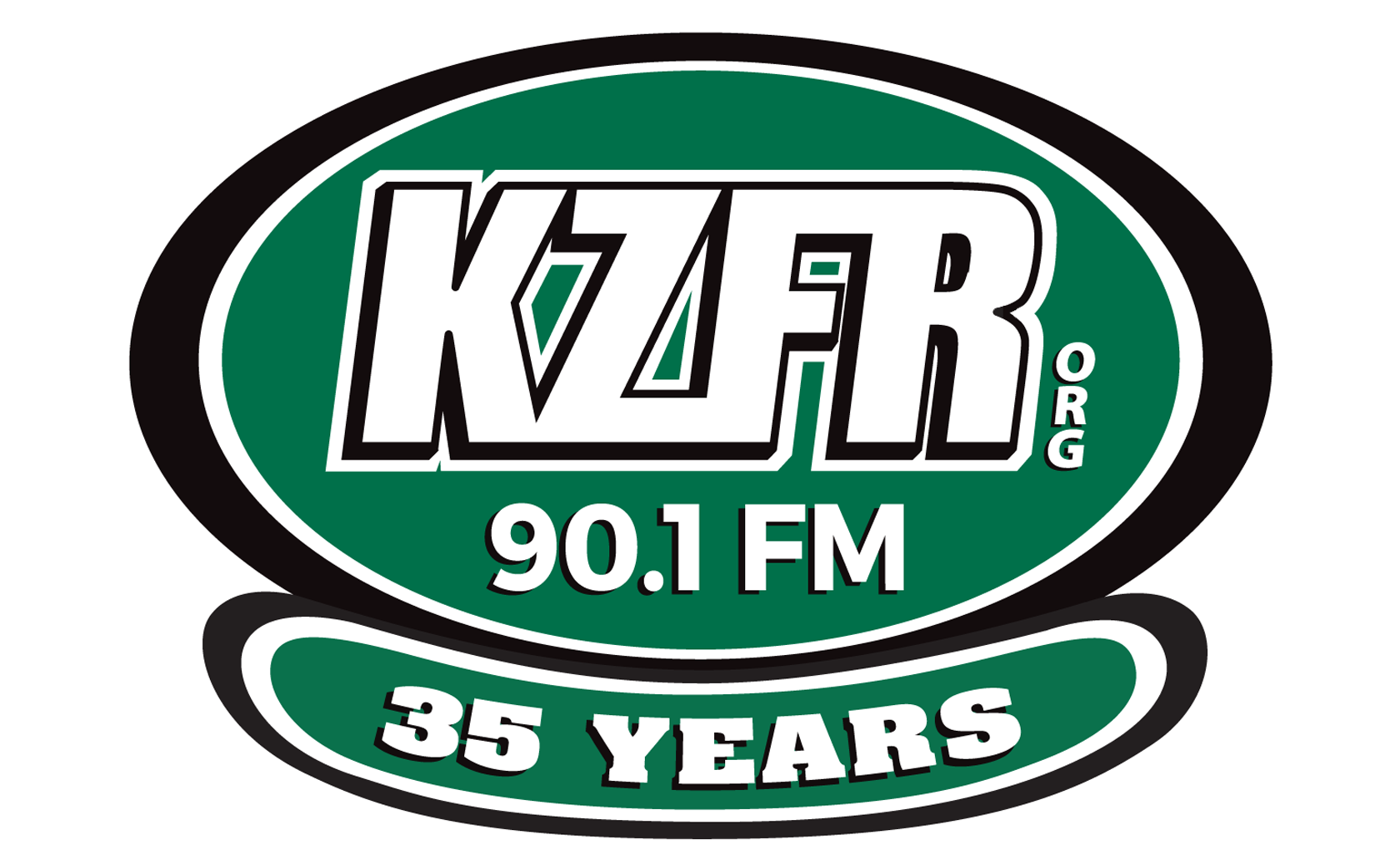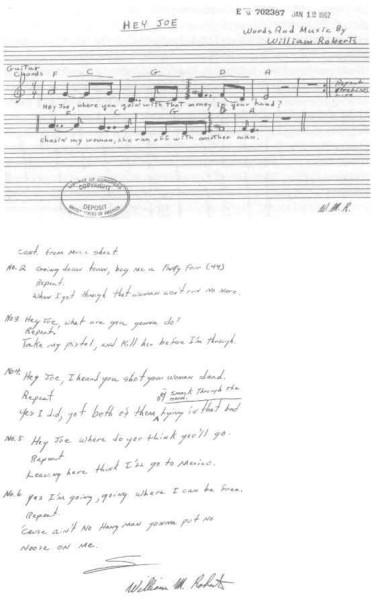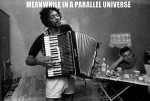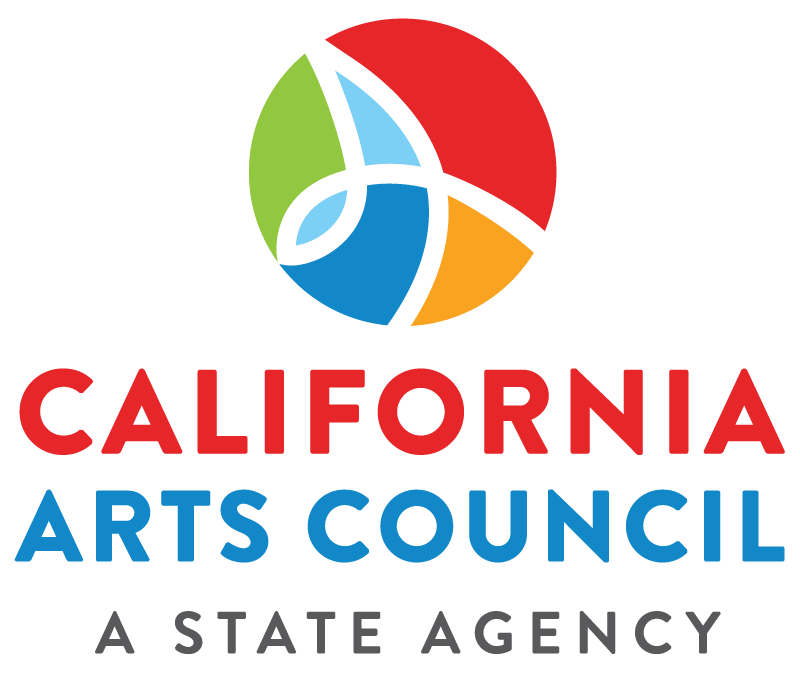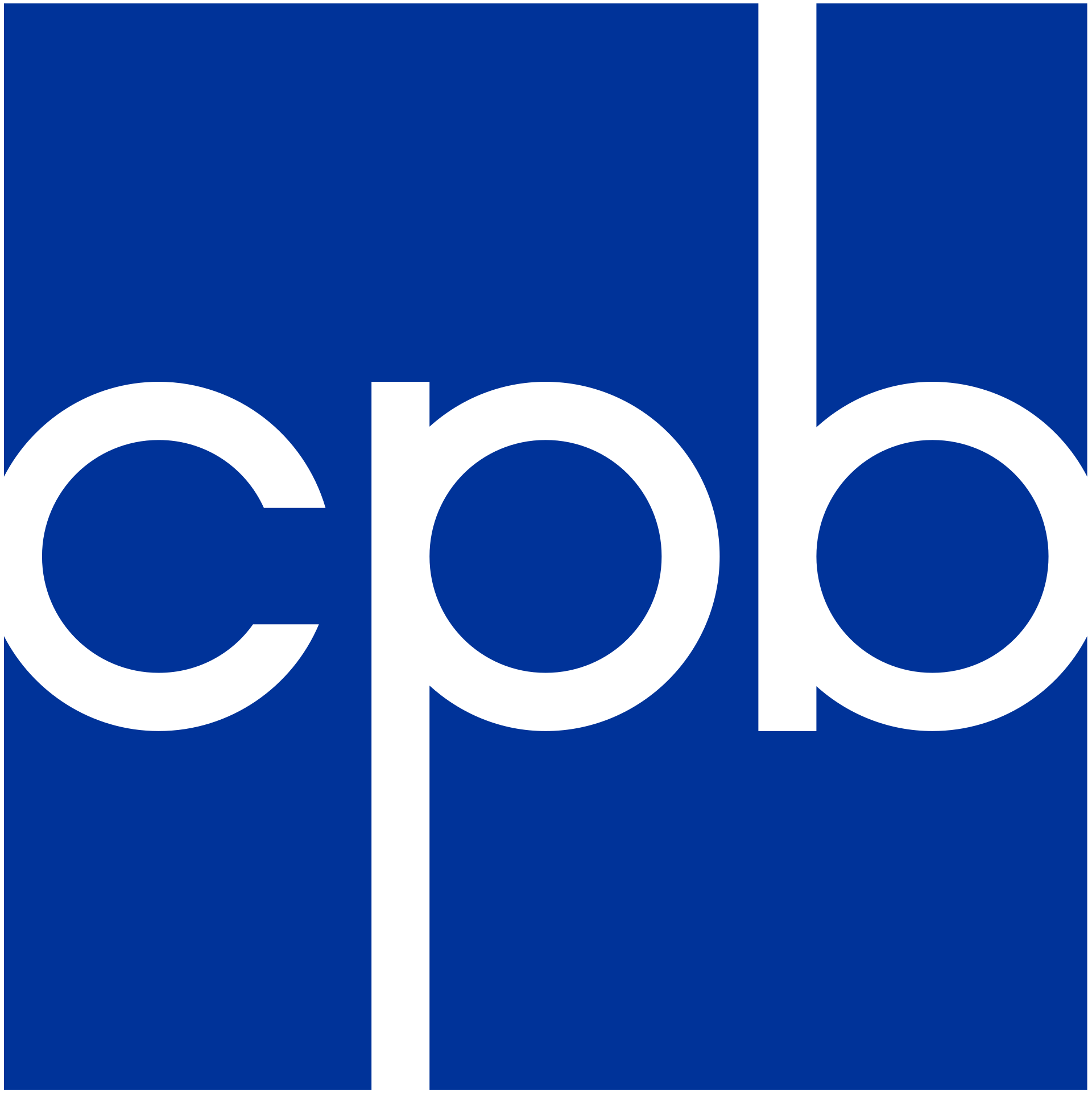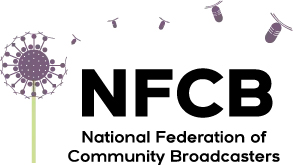The musical industrial complex can be as mercenary as its military counterpart; especially for folk musicians. Most old-time folkies agree that prior to the Kingston Trio hitting it big in 1958 with a best selling record of “Tom Dooley,” commercial instincts were usually ignored by the majority of musicians who played traditional songs on traditional string instruments. The lucrative success of the trio changed the culture and music ownership and publishing rights became an obsession. Business minded musicians became more focused on publishing. Randy Sparks (founder of the New Christy Minstrels and their farm team The Back Porch Majority) carried a notebook with the copyright expiration dates of every Stephen Foster tune and dozens of folk tunes. The day each expired was the day he re-wrote the song and submitted his new version for copyright approval.
“Hey Joe” sounds like an old murder ballad that somehow found its way into the set lists of 1960’s garage bands; it sold millions of copies after Jimi Hendrix recorded it and as of 2010 has been recorded at least 1600 times. It’s dark and disturbing but it’s not very old. And its history is almost as dark as the story it tells.
It all began in 1955 when a New Yorker named Niela Miller wrote a song called “Baby Please Don’t Go to Town.” It used a circle-of-fifths chord progression; C G D A E E7 and a ‘question and answer’ lyric format. In 1956 Niela taught her boyfriend, guitarist Billy Roberts, her tune.
A few years after Niela and Billy went their separate ways Roberts re-wrote the song: He kept the chord progression and the same question and answer format, but her song about a romantic breakup became his song about a murder. Roberts possibly was also inspired by Carl Smith’s 1953 country hit "Hey Joe", which shared the title and the 'question and answer' format; and by the traditional ballad "Little Sadie", which tells of a man on the run after he has shot his wife. Roberts performed the song from 1959 until 1962 without recording it or copyrighting it. It was a compelling song and numerous folkies recall him performing it that early. Some, like Dick Weissman and Pete Seeger, recognized Niela’s composition at the root of it.
In 1962 while performing in Washington D.C.
Roberts took the time to register “Hey Joe” at the Library of Congress, and
there is a demo tape that he made at about the same time. He told friends that he wrote out the chord progression and lyrics
and mailed them to himself in a registered letter years earlier. It remained
unopened as proof that he wrote it.
That same year Niela recorded an acetate of her song catalog and copyrighted
her songs. Seeger encouraged her to seek
a legal remedy over “Hey Joe” and offered to testify on her behalf. She didn’t because chord progressions can’t
be copyrighted.
The copyright conflict didn’t end in 1962 however. Billy had traveled throughout the U.S. and Europe with his friend Dino Valenti. Everywhere they went they busked on the street and performed in clubs. “Hey Joe” was always in Robert’s set list and when Valenti moved to Los Angeles in 1963 he began performing it himself. Subsequently a number of local bands added the song to their live sets, including the Byrds, the Leaves, Love, and the Buffalo Springfield. There was actually a race to release a folk-rock or rock version of the song on record in 1965 and the Leaves won. The Leaves were tenacious: They eventually released three different recordings of “Hey Joe” in the course of two years, and the third one became a regional hit and gained some national radio exposure.
That’s when Roberts found out that Valenti had copyrighted the song for himself in 1963 and signed a publishing contract with a Los Angeles publishing house. Roberts was able to regain his composing credit through negotiations, but couldn’t get out of sharing the publishing income with the L.A. publisher.
Los Angeles however was good for “Hey Joe.” There were numerous recordings being made of the song; some slow versions and some faster. Tim Rose was a folk musician who had been around for a while, previously performing in Greenwich Village with John Phillips and Cass Elliot (who later formed the Mamas & Papas) and then with Jake Holmes (whose 1967 acoustic song “Dazed & Confused” was famously stolen by Led Zeppelin - he sued, and they finally settled in 2012.) Rose was a bluesy shouter who slowed “Hey Joe” down, changed some words and the key, and also copyrighted it as his arrangement of a traditional public domain song. It wasn’t the first time he made that mistake: He also had claimed Bonnie Dobson’s “Morning Dew” was in the public domain after he adapted Fred Neil’s version. Rose told journalist Ritchie Unterberger that he first heard “Hey Joe” in 1960 at a bluegrass festival, and that Vince Martin had taught him how to play it and that Martin told him that he had learned it from a woman. Vince Martin was a member of the Tarriers in the late 50’s and Fred Neil’s duo partner in the ‘60’s. You don’t have to dig deep on the internet to find Vince’s rants against record companies and publishers. He’s still looking for royalties and residuals from the Tarrier’s 1957 hit song “Cindy, Oh Cindy.”
Rose released his slow version of “Hey Joe” on a 1966 Columbia single that came out while the Leaves version was already on the charts. So it didn’t sell well, but one guy who heard it (or saw Rose perform it) was Jimi Hendrix who incorporated Tim’s arrangement into his performances at Greenwich Village’s Café Wha? A few months later Hendrix was in England recording his first single, “Hey Joe.” When it was released it listed Roberts as composer.
Billy Roberts finally recorded a commercial album, Thoughts of California in 1975. It didn’t contain “Hey Joe.” He lived and performed in Northern California until he was seriously injured when his car drove off an embankment along Highway 1 north of San Francisco in 1991. He passed away in 2017.
Niela Miller originally began performing after meeting Eric Weisberg in Greenwich Village. One of her other songs “Mean World Blues” was recorded by Dave Van Ronk. She eventually became a psychotherapist, counselor, author and educator. She continues her crusade for acknowledgment as a composer of “Hey Joe.”
On American Pastimes: Niela Miller’s “Baby Please Don’t Go to Town,” Carl Smith’s “Hey Joe,” Billy Roberts performing his demo of "Hey Joe" and playing some 12-string instrumentals he recorded for World Pacific Records; The Byrds, Tim Rose, Tim O’Brien & Jerry Douglas perform “Hey Joe," and there's a gypsy-jazz instrumental version by the Joscho Stephan Trio. Also, Dave Van Ronk’s cover of Niela's “Mean World Blues," a version or two of “Little Sadie” and Melanie’s “Nickel Song,” a tune about her royalties (or lack thereof).
